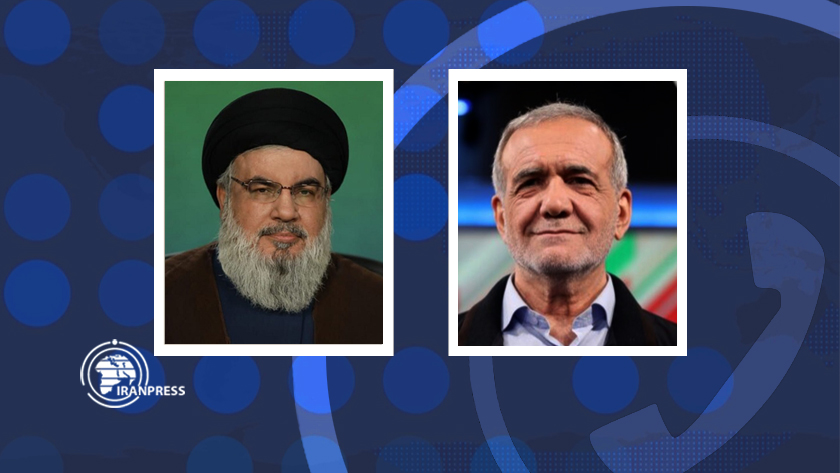Iran Reiterates Support for Regional Resistance Movements Against Israel
In a recent exchange, Iran has once again reiterated its unwavering support for resistance groups in the region, emphasizing its ongoing commitment to opposing what it deems the illegitimate Zionist regime. This stance was underscored in a message from Iran’s president-elect, Ali Pezeshkian, to Hassan Nasrallah, the Secretary-General of Hezbollah.
Iran’s Historical Support for Resistance Movements
The crux of Pezeshkian’s message lies in Iran’s deeply rooted policy of backing resistance movements against Israel, a stance the Islamic Republic considers fundamental to its foreign policy. This relationship is not new; Iran has long been a core supporter of groups such as Hezbollah, providing both moral and material support as these groups challenge Israeli policies in the region.
Enduring Commitment
Pezeshkian emphasized the Islamic Republic’s steadfast support, stating, "The Islamic Republic has always supported the Resistance Groups in the region against the illegitimate Zionist regime. Supporting the resistance is rooted in the fundamental policies of the Islamic Republic of Iran and will continue with strength."
His message conveyed confidence that these resistance movements will persist in their struggle against Israel’s actions, which Iran characterizes as warmongering and criminal, particularly aimed at the oppressed people of Palestine. This sentiment reinforces Iran’s strategic and ideological alignment with groups opposing Israel.
Regional Context
This declaration comes in a period of heightened tensions across the Middle East. Israel’s policies and actions in Palestinian territories, as well as its political maneuvers in regions such as Lebanon and Syria, have drawn considerable international attention. Iran’s vocal support of resistance movements is intertwined with a broader geopolitical struggle involving several state and non-state actors.
Implications for the Region
Iran’s backing of resistance movements plays a critical role in the broader Middle Eastern geopolitical landscape. These groups, often listed as terrorist organizations by Western countries, are seen by Iran as legitimate defenders of oppressed populations and crucial players in countering Israeli policies.
The emphasis on these movements’ importance, as stressed by Pezeshkian, aligns with Iran’s strategy to extend its influence in the region through proxy groups. This approach is a cornerstone of Iranian foreign policy, reflecting both ideological commitments and strategic calculations.
Looking Forward
As Iran continues to assert its support for resistance movements, the international community remains divided. Some view Iran’s role as destabilizing, while others see it as a counterbalance to what they perceive as Israeli aggression.
The ongoing saga of support for these groups indicates that the power dynamics in the Middle East are far from simple, with multiple layers of historical animosity, strategic interests, and ideological clashes continuing to shape the region’s future.
For more information on Hezbollah: Hezbollah Official Website
The statements provided by Iran’s president-elect serve as a clear reminder of the deep-seated and complex alliances and enmities that characterize Middle Eastern geopolitics, shaping policy and action plans for multiple nations involved in ongoing conflicts.
